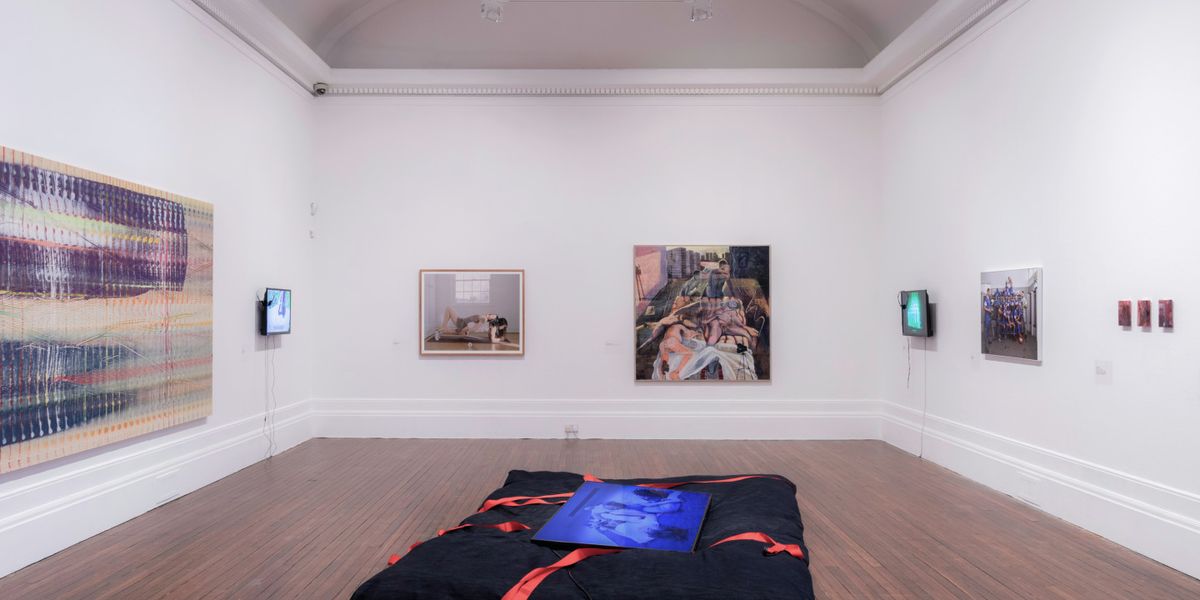As public art institutions in the UK face a funding crisis, commercial ventures are ever more stepping into the breach. One of the latest examples is a new partnership between Gertrude, an app that provides content about artists as well as functioning as a marketplace to buy their art, and New Contemporaries, a leading organisation that has supported graduates straight out of British art schools for the past 75 years.
Gertrude already has 82 artists on its books, but the app will also feature the 55 artist who have been selected for the New Contemporaries exhibition, which opens 19 January at the Camden Art Centre. It has been two decades since the show was held at the London institution.
Will Jarvis, the chief executive of Gertrude, believes the partnership signals a broader shift in the market, including more flexible forms of representation for artists who may not have galleries. “It’s in the spirit of collaboration and the spirit of broadening the demographic of artists who are available—and also collectors who want access to new art,” he says. “For ages, the non-commercial and commercial art worlds have been at odds with each other, but we’re now at a stage where pragmatism and practicality have to override.”
Perhaps surprisingly, New Contemporaries has been a selling platform in the past, but Jarvis believes his business has “honed a potent way of capturing potential sales interest”—including from patrons of the Camden Arts Centre. “A lot of those patrons are very involved in emerging art so it’s a brilliant jumping off point for them, and for the artists to start building a foundation of individuals who are either potentially interested in acquisitions or who might help their careers down the line.”
Zayd Menk, Sam Ayrton Mendes, Jil Mandeng and Jeremy Scott are among the artists whose works will be on show in Camden and for sale via Gertrude. Proceeds from the sales will be split between the artists and New Contemporaries, which also supports artists with mentoring, studio bursaries and residency programmes. Meanwhile, Gertrude will take a share of any future sales by the New Contemporaries on the app.
The partnership comes as the auction market for ultra-contemporary art fell in value last year compared with the highs of 2019—but the volume of sales of such art grew by more than 20%, suggesting the demand for work by emerging artists remains strong.
Jarvis thinks Gertrude will enable a new pool of collectors to engage with contemporary art. “We need to bring more people in, there needs to be a middle class who feel comfortable buying art,” he says. “When we first started the platform, we thought the barrier to entry was purely financial. In fact, the bigger barrier to entry is that there’s a cultural chasm where people don’t feel they are entitled to an opinion about art.”
The chief executive says the way to tackle this is to form a more holistic approach to selling art. “It’s about creating a situation where individuals can follow an artist on their journey and get to know their work and feel connected to that artist,” he says. “It might take a year, it might take five years, but eventually that person will probably buy work from that artist.”
Though Gertrude is a sales platform that ostensibly bypasses the traditional gallery system, Jarvis says the need for artists to exhibit in physical spaces is still paramount. He plans to collaborate with several dealers in the coming months, including with the London gallery Seventeen in April. As Jarvis puts it: “I want Gertrude to be a really collaborative space, and at some point I would like to bring galleries on board. It’s also in their interest to broaden the demographic that engages with buying contemporary art.”


